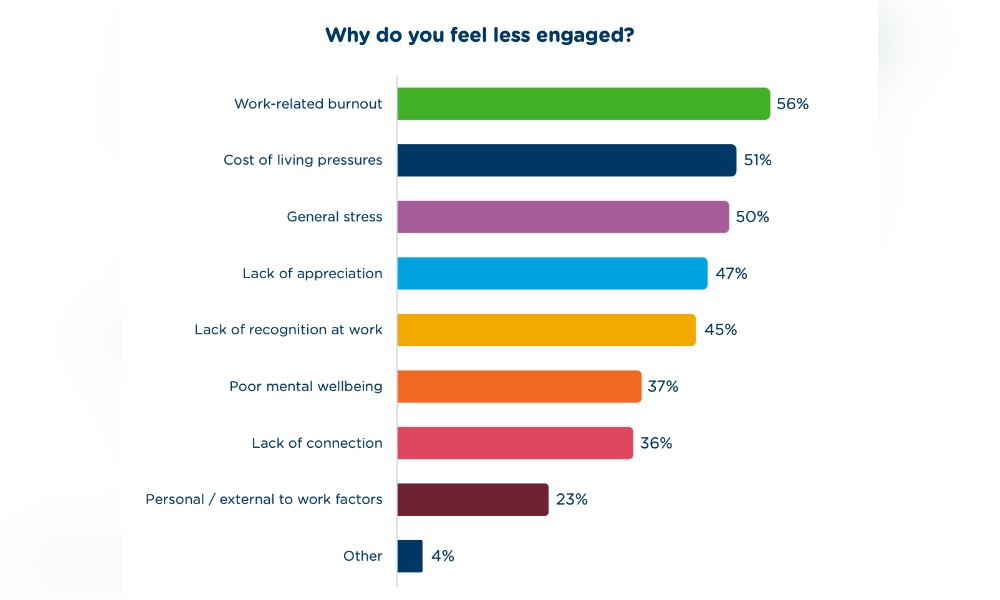
Employees are staying, but it's not because of high engagement

A new white paper has uncovered an "engagement paradox" in Australia where employee retention is high despite employee engagement and happiness on a decline.
The white paper from Reward Gateway and Edenred found that 45% of employees are not looking to change their roles within the next two years.
But this desire to stay isn't driven by satisfaction in the workplace, according to the report.
"Our research reveals that the majority of those staying in their current role are doing so because they consider the job market too risky to make a move, with almost three-quarters saying they'll move jobs when the economic climate improves," the report reads.
In fact, the report found that 27% of employees are less engaged at work compared to the previous 12 months, with one-third of full-time employees experiencing a "low level of happiness."
According to the report, at least half of employees feel less engaged due to work-related burnout (56%), cost-of-living pressures (51%), and general stress (50%).

Source: The Engagement Paradox Report
But employers might be missing the mark on the reasons why employees feel less engaged, according to the report, which found that employers believe these are the factors why employees are less engaged:
"It's interesting to see this agreement across both groups of the importance of recognition and financial wellbeing, while business and HR decision makers may be missing the impact of stress and burnout," the report reads.
To address declining engagement, the report suggested taking the following strategies:
Read more about the "engagement paradox" in this free white paper.